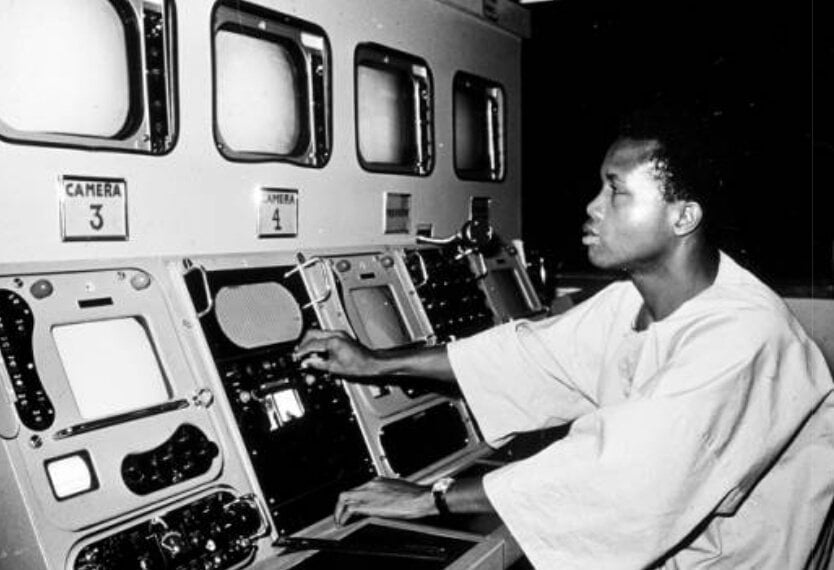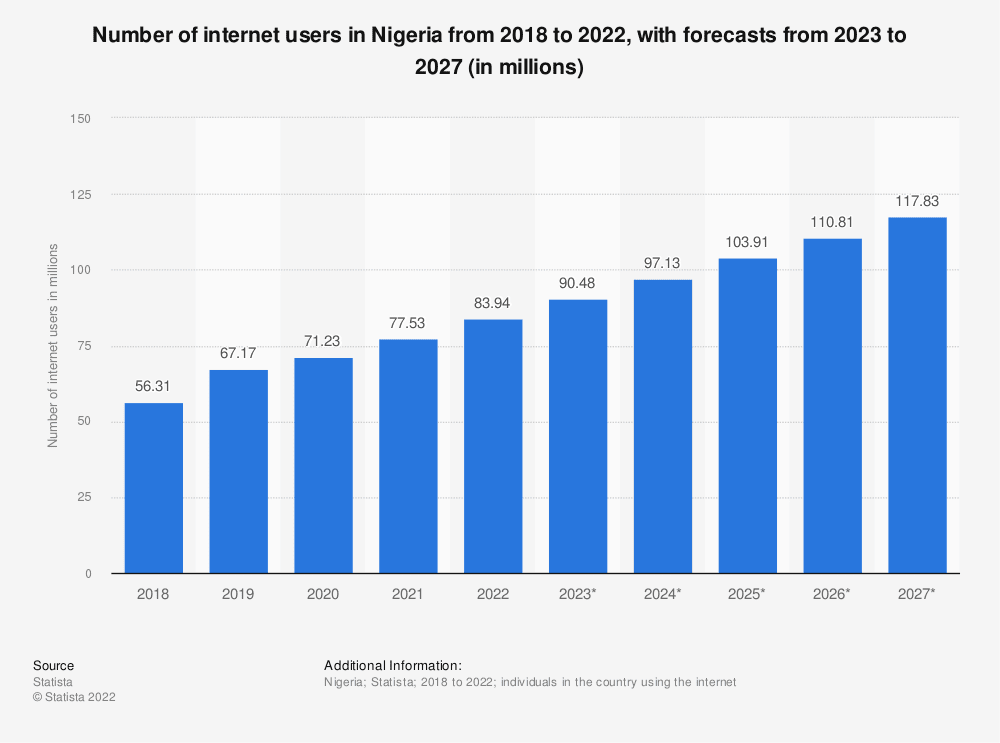Telecommunication History in Nigeria
Telecommunication History in Nigeria

Table of contents
- Telecommunication History in Nigeria
- Telecommunication History in Nigeria
- Telecommunication History in Nigeria
- Telegraph was also installed alongside permanent phone connections.
- Fixed phones and telegraph in Nigeria
- Telegraph was also installed alongside permanent phone connections.
- Radio in Nigeria
- Nigerian Modern radio stations
- Television in Nigeria
- Nigerian Modern TV stations
- Telecommunication History in Nigeria
- Mobile Network in Nigeria
- Internet in Nigeria
- Hello! We are a group of skilled developers and programmers.
Telecommunication History in Nigeria
The telecommunications industry is made up of many different kinds of businesses. The Internet, standard telephone service, and other forms of broadcast media and electronic communication are all included. Insight into the history and current state of Nigeria’s telecom sector is intriguing.

Telecommunication History in Nigeria
To provide fixed-line telephone service in all of Lagos’s government buildings took seven long years. Jebba and Ilorin offices got the hookup later. Most of the changes were made in 1923, which was a key year. The cities of Calabar and Itu saw the introduction of the world’s first commercial telephone service. The development of permanently installed telephones continued. By 1952, a direct phone line between Ibadan and Lagos was operational. Being the sole link between Nigerian states and the colonial capital of London, it quickly spread to other Nigerian cities.
Telegraph was also installed alongside permanent phone connections.
In 1960, there were 60 people using the new Lagos service. Given that a private corporation, Cable and Wireless, controlled and operated all external services, this was an endeavour to improve domestic phone service in the United Kingdom.
When independence was finally won in 1960, the country’s leaders finally had the freedom to make their own decisions about the development of their nation’s telecommunications networks. To connect the commercial and industrial sectors of Nigeria, the government intended to install thousands of phone lines.
The total number of fixed telephone lines climbed from 60,000 in the 1960s to 90,000 in the 1970s and eventually to 116,000. Nigerian External Telecommunications (NET) Limited was established, and the country has actively encouraged the development of additional telecommunications companies.
Fixed phones and telegraph in Nigeria
The telecoms industry has been operational since 1886. It is in that year that a marine route between Lagos and London is established. As Great Britain was the ruling power at the time, it was crucial to maintain regular communication with the colonial administrations.

To provide fixed-line telephone service in all of Lagos’s government buildings took seven long years. Jebba and Ilorin offices got the hookup later. Most of the changes were made in 1923, which was a key year. The cities of Calabar and Itu saw the introduction of the world’s first commercial telephone service. The development of permanently installed telephones continued. By 1952, a direct phone line between Ibadan and Lagos was operational. Being the sole link between Nigerian states and the colonial capital of London, it quickly spread to other Nigerian cities.
Telegraph was also installed alongside permanent phone connections.
Nigerian telecommunications history begins in 1960 with 60 subscribers in Lagos. Given that a private corporation, Cable and Wireless, controlled and operated all external services, this was an endeavour to improve domestic phone service in the United Kingdom.
When independence was finally won in 1960, the country’s leaders finally had the freedom to make their own decisions about the development of their nation’s telecommunications networks. To connect the commercial and industrial sectors of Nigeria, the government intended to install thousands of phone lines.
The total number of fixed telephone lines climbed from 60,000 in the 1960s to 90,000 in the 1970s and eventually to 116,000. Nigerian External Telecommunications (NET) Limited was established, and the country has actively encouraged the development of additional telecommunications companies.
Table of contents
- Telecommunication History in Nigeria
- Telecommunication History in Nigeria
- Telecommunication History in Nigeria
- Telegraph was also installed alongside permanent phone connections.
- Fixed phones and telegraph in Nigeria
- Telegraph was also installed alongside permanent phone connections.
- Radio in Nigeria
- Nigerian Modern radio stations
- Television in Nigeria
- Nigerian Modern TV stations
- Telecommunication History in Nigeria
- Mobile Network in Nigeria
- Internet in Nigeria
- Hello! We are a group of skilled developers and programmers.
Radio in Nigeria
Telecommunication History in Nigeria
Parallel to the growth of Nigeria’s burgeoning telecommunications sector in 1933 was the spread of radio transmission. The first ever RDS broadcast occurred that year (RDS stands for Radio Distribution System). While it’s not surprising that residents of British colonies like Nigeria’s Lagos were able to receive BBC transmissions, this event is considered the “birth” of Nigeria’s future radio industry.

A revised transliteration of the RDS acronym was introduced two years later that resembled Radio Diffusion System. By 1939, there were 2,000 licenced receivers thanks to the proliferation of new stations.
It wasn’t until 10 years later that the proposal to create the National Broadcasting Service was made public. This group was formally established in Lagos in 1951, and it served as a solid foundation for the later, independently established regional stations around Nigeria. They showed up in other states including Ibadan, Sokoto, Ilorin, and Kano.
Later, in 1956, 1961, and 1978, there were further significant shifts. The Nigerian Broadcasting Corporation (NBC), the Voice of Nigeria (VoN), and the Federal Radio Corporation of Nigeria (FRCN) all came into existence in those years following the NBC’s merger with the Broadcasting Corporation of Northern Nigeria.
Private radio stations have been airing locally since 1994, and internationally since 1996.

Nigerian Modern radio stations
Present-day Nigeria is a hotbed for radio broadcasting. Regional, government, private, and foreign media outlets are the four main categories.
- Depending on who you ask, the number of government-run radio stations in Nigeria might be anywhere between zero and fifty.
- More than 20 radio stations are non-commercial.
- There are at least 20 shortwave radio stations to choose from.
- Over eighty live radio channels
The Federal Radio Corporation of Nigeria remains, at present, the country’s most listened-to radio and television station.
Television in Nigeria
The evolution of the telecom industry was similarly relentless. In 1959, the very first television programme was shown to the public. It was the Ibadan-based Western Nigerian Government Broadcasting Company.

To be fair, Nigeria wasn’t the first African country to launch a television network. These stations were already in place in the continent’s north, but Nigeria moved fast to build up its own networks.
In terms of Nigeria’s telecommunications history, the earliest TV networks were initially owned by the government. By 1962, four broadcasting networks had debuted: two regional networks and one run by the federal government. Because of the constant creation of new states before to 1977, there was a constant influx of local TV networks. The NTA officially began operations in this year. In Nigeria, television is governed by the Nigerian Television Authority (NTA). It absorbed all the smaller networks in the country and is currently the dominant TV broadcaster in the country.
Nigerian Modern TV stations
TV is a popular entertainment option for millions of people. There is a wide variety of businesses represented on the list of Nigerian TV stations:
- More than seventy federal radio stations exist, according to estimates (both regional and national that are owned by the government)
- In addition, there is at least one television network serving each of the 36 states.
- Particularly on the private television side,
- Memberships to cable and satellite television
Telecommunication History in Nigeria
Mobile Network in Nigeria
Growth of the cellular market in Nigeria started in 1992. MTS pioneered the cellular industry when it launched in 1996. MTS is an abbreviation for “mobile telephone service.” As it was the first of its kind, the firm quickly became “dominant” and immensely popular, expanding by the thousands of lines necessary to meet the overwhelming demand from consumers.

Very few features were available on the first generation of mobile phones. You could only make and receive phone calls, send and receive text messages, and listen to ringtones that were one note. One might say that today’s smartphones are essentially akin to carrying about a little computer in one’s pocket. Several advancements have been achieved during the 1990s, as you are well aware.
Among Nigeria’s major cities, Lagos, Kano, and Abuja offer cellular network operators the most potential for growth. For a country with over 200 million people, local networks are hard at work building out their 5G networks and expanding into new, remote places. Despite this progress, many suburban areas still lack adequate coverage from cellular providers.
There are more than 160 million mobile customers and several telecommunications companies in Nigeria. This is a list of the most prominent Nigerian mobile network companies:
Table of contents
- Telecommunication History in Nigeria
- Telecommunication History in Nigeria
- Telecommunication History in Nigeria
- Telegraph was also installed alongside permanent phone connections.
- Fixed phones and telegraph in Nigeria
- Telegraph was also installed alongside permanent phone connections.
- Radio in Nigeria
- Nigerian Modern radio stations
- Television in Nigeria
- Nigerian Modern TV stations
- Telecommunication History in Nigeria
- Mobile Network in Nigeria
- Internet in Nigeria
- Hello! We are a group of skilled developers and programmers.
Internet in Nigeria
The Communications Commission of Nigeria legalised the provision of internet access to residents in 1996. It has authorised 38 separate companies to provide these services under separate licences. Linkserve Ltd was the first firm to provide a service that would become the Internet. This company pioneered the Internet service provider (ISP; an abbreviation for “Internet service provider”) industry and remains a market leader.

In other words, the Internet is currently undergoing expansion. The greatest areas to locate it are often large cities with an established infrastructure. The Nigeria Internet Group (NIG) is a non-profit organisation with the goal of providing internet connection to every person in Nigeria.
The 1999 poll estimated that around 100,000 Nigerians had Internet access at that time. Just think of it this way: As reported by the Nigerian Communications Commission, this number surpassed 91 million in 2017. As a result of this explosive expansion, Nigeria is expected to have more than 83 million internet users by 2022. By 2027, Statista predicts, more than 117 million people will utilise the internet (see image below).
Read: What is SEO?
Currently, the following companies dominate the Nigerian internet market:

Image credit: Statista

